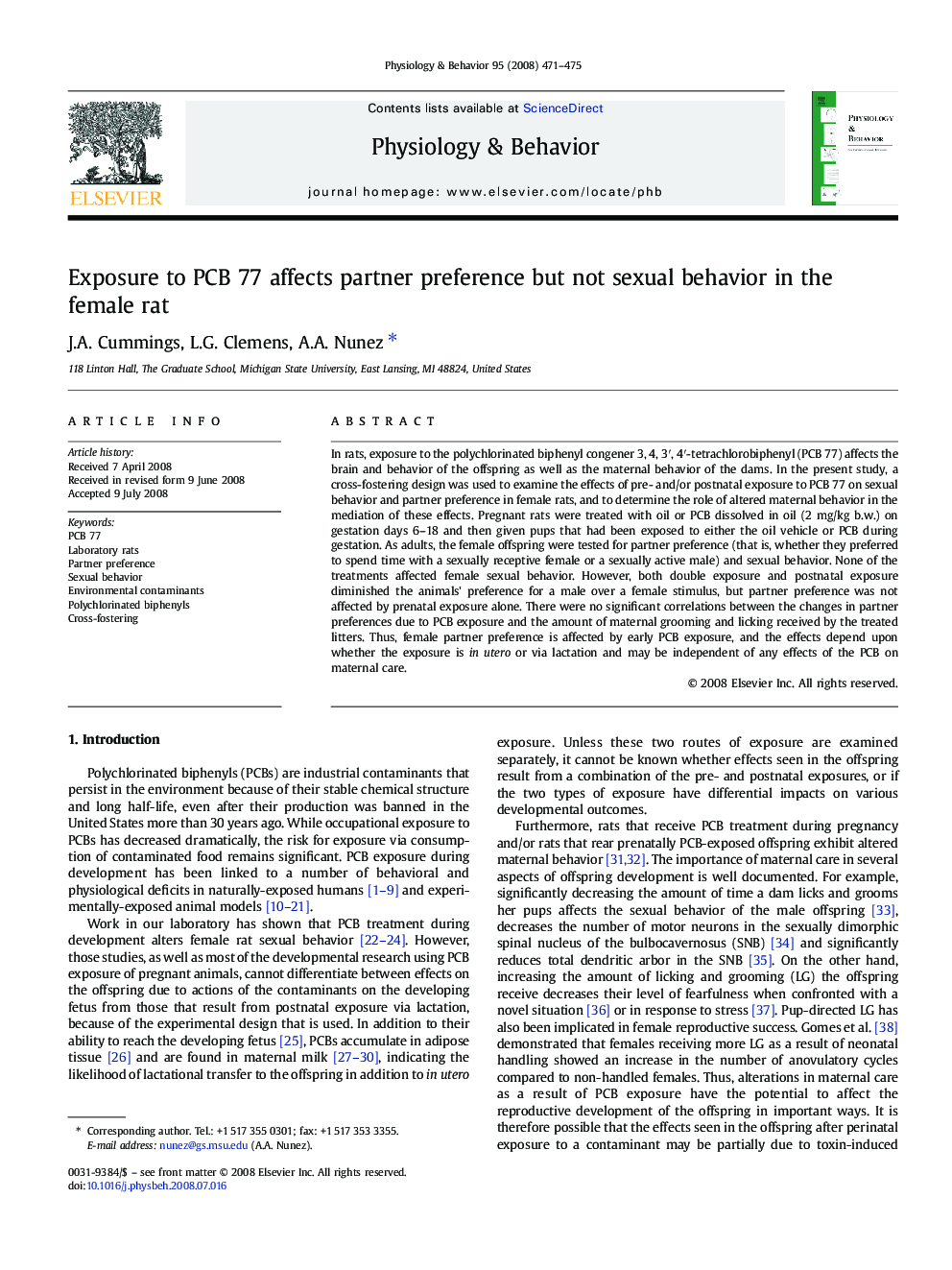| کد مقاله | کد نشریه | سال انتشار | مقاله انگلیسی | نسخه تمام متن |
|---|---|---|---|---|
| 2845344 | 1166388 | 2008 | 5 صفحه PDF | دانلود رایگان |

In rats, exposure to the polychlorinated biphenyl congener 3, 4, 3′, 4′-tetrachlorobiphenyl (PCB 77) affects the brain and behavior of the offspring as well as the maternal behavior of the dams. In the present study, a cross-fostering design was used to examine the effects of pre- and/or postnatal exposure to PCB 77 on sexual behavior and partner preference in female rats, and to determine the role of altered maternal behavior in the mediation of these effects. Pregnant rats were treated with oil or PCB dissolved in oil (2 mg/kg b.w.) on gestation days 6–18 and then given pups that had been exposed to either the oil vehicle or PCB during gestation. As adults, the female offspring were tested for partner preference (that is, whether they preferred to spend time with a sexually receptive female or a sexually active male) and sexual behavior. None of the treatments affected female sexual behavior. However, both double exposure and postnatal exposure diminished the animals' preference for a male over a female stimulus, but partner preference was not affected by prenatal exposure alone. There were no significant correlations between the changes in partner preferences due to PCB exposure and the amount of maternal grooming and licking received by the treated litters. Thus, female partner preference is affected by early PCB exposure, and the effects depend upon whether the exposure is in utero or via lactation and may be independent of any effects of the PCB on maternal care.
Journal: Physiology & Behavior - Volume 95, Issue 3, 20 October 2008, Pages 471–475